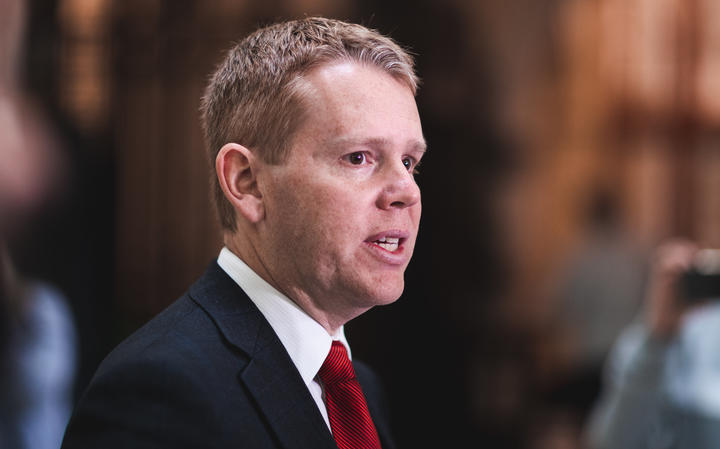
The new public health order - set to be announced by Covid-19 Response Minister Chris Hipkins - will fill a gap in our border defences that Professor Michael Baker has previously described as "hugely concerning".
It will also address an inconsistency that currently means thousands of border workers are deemed high-risk enough to be required to have regular tests for Covid-19, but they're able to work on the frontline without being vaccinated.
In April, Prime Minister Jacinda Ardern said that every border worker would be redeployed away from the frontline if they were not vaccinated.
But the subsequent public health order only applied to MIQ workers and non-MIQ government workers at the border, such as Customs officers.
It did not apply to airside retail and hospitality workers at airports, or privately-employed baggage-handlers or airport cleaners - such as the one who caught Covid-19 in April after cleaning a plane that carried high-risk passengers.
And it did not apply to non-government workers who come into contact with items that might be infected - such as the LSG SkyChefs worker who handled laundry from Auckland International Airport and who may have sparked the February cluster.
The latest data - for the week ending June 20 - shows about 1600 unvaccinated workers at the border, 1000 of them port workers.
The new order, The New Zealand Herald understands, will apply to non-MIQ workers at the border who work in high-risk areas, interact with high-risk people, or handle high-risk goods.
It is understood to cover almost all of the border workforce who are already required to be regularly tested.
But there will be a substantial lead-in time until those workers need to have had at least one jab, with the Government currently considering September 30 as the deadline for non-government workers at the ports and airports.
That would give them more than two and a half months to get their first Pfizer dose, which could see the Government facing criticism that it's going too slowly.
Supply shouldn't be an issue in coming months either, with the Government set to receive 700,000 doses of the vaccine in the second half of July.
The Government has previously been reluctant to give short lead-in times because deploying thousands of workers at once would cause significant workplace disruption.
There has also been concern over how easy it would be to replace specialised workers who didn't want to get a jab.
The Herald has been reporting on the number of vaccinated border workers for months, and the Government recently signalled a new public health order to require more workers at the border to be vaccinated.
Hipkins has said he would have liked more border workers to have been covered earlier.
Sir Brian Roche, who chairs the independent advisory group advising the Government's Covid response, recently said he was surprised by the number of unvaccinated border workers.
"The system is there to respond to known risks in MIQ and at the border. That's why the workers need to be appropriately protected," he told the Herald two weeks ago.
"Having them vaccinated is critical. We'll be pushing that really hard."
The Government also had little gauge on how many non-MIQ border workers were being regularly tested until its border worker testing register became mandatory at the end of April.
Hipkins has also said he wished it had been made mandatory sooner.
The most recent data - for June 2 - shows there about 900 border workers who are overdue for a test.
Comments
"Almost all border workers who need to be regularly tested will also need to be vaccinated" thin end of the wedge folks....
They should all have been vaccinated months ago. No vaccine; no job. There needs to be consequences for not being vaccinated (apart from the govt not being able to deliver vaccines at a reasonable rate).












